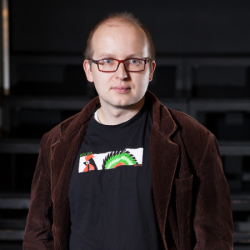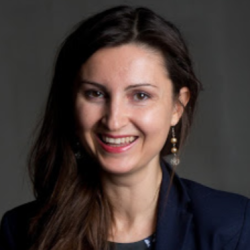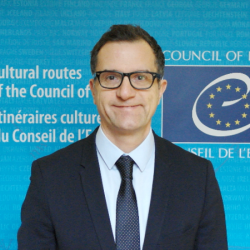10:00 - 10:05: Welcome by Milena Popova, Europeana Foundation
10:05 - 10:20: Common European data spaces presentation by Fulgencio Sanmartin, EC DG Connect
10:20 - 10:35: Europeana Initiative and data space for cultural heritage presentation by Harry Verwayen, Europeana Foundation
10:35 - 10:50: Cultural Routes of the Council of Europe by Carolina Clark, European Institute of Cultural Routes
10:50 - 11:05: Energizer/ Break
11:05 - 11:45: Jewish History Tours - project overview and outcomes (tools, digital tours, recommendations) by Pavel Kats, Jewish Heritage Network, Victor Sorenssen, AEPJ and Milena Popova, Europeana Foundation
11:45 - 12:00: Q&A / Open discussions on future collaborations
12:00 - 13:00: Lunch break
13:00 - 14:15: Sharing cultural collections with Europeana by Lianne Heslinga, Europeana Foundation, Debra Brunner, Sonya Shaipak, 'The Together Plan', Emil Majuk 'Grodzka Gate - NN Theatre' and Vadim Shestopalov, Jewish Heritage Network
14:15 - 14.30: Break
14:30 - 15:30: 7 tips for digital storytelling with cultural heritage by Beth Daley, Europeana Foundation
15:30 - 15:45: Break
15:45 - 16:45: AI & Innovation for enhanced experiences in culture and tourism by Alexander Raginsky, Pangeanic and Konstantinos Chatzitheodorou, Pangeanic
16:45: Event end
Capacity building sessions overview
Sharing cultural collections with Europeana
Speakers: Lianne Heslinga, Metadata Coordinator, Europeana Foundation, Debra Brunner, Sonya Shaipak, 'The Together Plan', Emil Majuk 'Grodzka Gate - NN Theatre', Vadim Shestopalov, Jewish Heritage Network
In this session we will make a brief and practical introduction into Europeana and the process for sharing your cultural collections with Europeana, providing you with guidelines and requirements. Next, we will showcase how these steps work in practice by highlighting real-life examples from the Jewish History Tours project.
7 tips for digital storytelling with cultural heritage
Speaker: Beth Daley, Editorial Adviser, Europeana Foundation
Telling stories is part of being human. It’s how we’ve shared knowledge and important messages throughout our history, and how we continue to connect to each other individually and across communities. Now, we’re doing it more and more through digital means - blogs, videos, audio tours. So, how do we make sure that the connection between storyteller and listener is strong and effective when we’re not always face-to-face?
In this workshop, we’ll share our seven tips for digital storytelling with cultural heritage content and guide you through them with some creative writing exercises. We’ll use cultural heritage items from the Europeana website – particularly those associated with the Jewish History Tours project – to inspire you, to build your confidence in your own storytelling skills, and to help you create a strong connection with your audiences.
We’ll present the session in English but you can participate and tell your stories in any language. There’s no need to share what you write, but we’d love you to comment on the ideas and the process if you feel comfortable to do so.
AI & Innovation for enhanced experiences in culture and tourism
Exploring the Power of AI in Jewish History Tours: Enhancing Cultural Experiences through Machine Learning and Natural Language Processing
Speaker: Alexander Raginsky, Tech Lead, Pangeanic
In this talk, we will delve into the remarkable applications of AI in the Jewish History Tours project. Through the utilization of machine translation, automatic voiceover, geo Named Entity Recognition (NER), image recognition, automatic subtitling, and ChatGPT-assisted storytelling and rephrasing, we have revolutionized cultural experiences and storytelling. Discover how AI technologies have transformed the way we engage with Jewish history, providing immersive and accessible encounters through language processing, image analysis, and interactive dialogue.
Leveraging Large Language Models for Enhanced Cultural Heritage and Tourism Exploration: The Potential of Fine-Tuning Culture Chatbot
Speaker: Konstantinos Chatzitheodorou, Head of Machine Learning, Pangeanic
This talk explores the integration of Large Language Models (LLMs) into Culture Chatbot to enhance cultural heritage and tourism exploration. By fine-tuning LLMs for these domains, the chatbot offers customized responses, ensuring accurate information retrieval. The integration enables conversational interactions, improving user experience and fostering a deeper connection with cultural resources. Benefits of LLM-based chatbots include improved accessibility, personalized recommendations, and increased engagement. However, challenges such as data privacy and ethical considerations must be addressed when implementing LLMs in these sectors.








